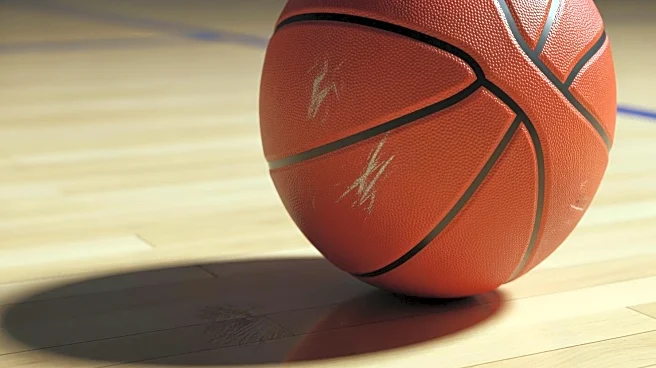What is the story about?
What's Happening?
Manchester United's women's team has undergone significant changes during the summer transfer window, including the strategic acquisition of Jess Park from City and the departure of Grace Clinton. The transfers were conducted as separate deals, with City paying more for Clinton than United did for Park, resulting in a profit for United. Jess Park, now one of the highest-paid players in the women's team, left City seeking more game time. Meanwhile, Grace Clinton decided to join a direct rival, citing a desire for growth and development. United's head coach, Marc Skinner, emphasized the importance of moving forward with players committed to the club. Additionally, United signed experienced players Julia Zigiotti Olme and Fridolina Rolfo to strengthen their squad. Despite these acquisitions, concerns remain about the team's depth, particularly in the forward line and right-back positions.
Why It's Important?
The changes at Manchester United reflect broader trends in women's soccer, where strategic player trades and acquisitions are becoming increasingly common. The club's approach to balancing investment with disciplined budgeting highlights the challenges faced by women's teams in maintaining competitiveness while ensuring financial sustainability. The departure of key staff members raises questions about the club's ability to retain talent and maintain stability. As the women's game continues to grow, clubs like Manchester United must navigate the complexities of player and staff management to remain competitive in domestic and European competitions. The team's ability to adapt and strengthen its squad will be crucial in achieving success in the upcoming season.
What's Next?
Manchester United plans to be active in the winter transfer window to address depth concerns, particularly in the forward line and right-back positions. Head coach Marc Skinner has acknowledged the need for additional players to compete effectively in European competitions. The club's strategy will focus on finding the right balance of investment to ensure the team's competitiveness and success. As the season progresses, United will aim to integrate new players and adapt their tactics to maximize their potential. The team's performance in domestic and European competitions will be closely watched, with fans and stakeholders eager to see how the club navigates these challenges.
Beyond the Headlines
The strategic moves by Manchester United highlight the evolving landscape of women's soccer, where clubs are increasingly investing in talent and infrastructure to compete at the highest levels. The club's focus on sustainable development and disciplined budgeting reflects a broader trend in sports management, emphasizing long-term growth over short-term gains. The departure of key staff members and the integration of new players present both challenges and opportunities for the club. As women's soccer continues to gain popularity and visibility, clubs must balance the demands of competitiveness with the need for financial stability and player development.
















